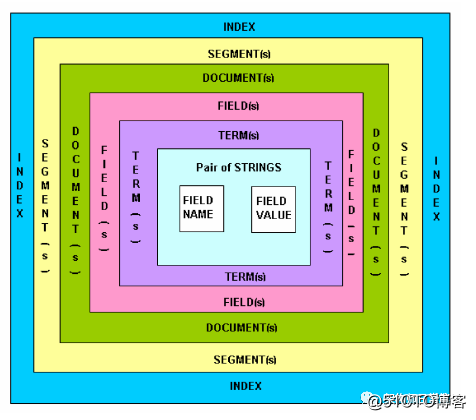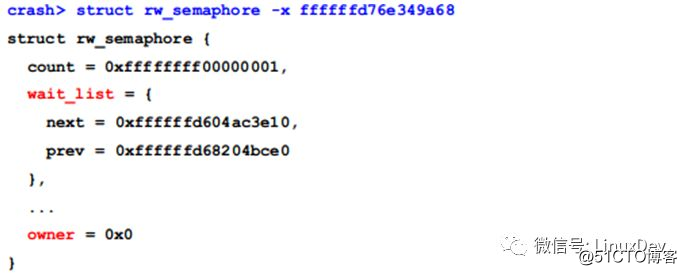lucene实战--打分算法没有那么难?
2021-03-13 07:32
标签:模型 get from Lucene false val prot hive gic 准备工作 1.1 下载最新源码,https://github.com/apache/lucene-solr 1.2 编译,按照说明,使用ant进行编译(我使用了ant eclipse) 1.3.将编译后的文件导入到eclipse,sts或者idea中 2.新建测试类 其中,分词使用自定义的NGramAnalyzer,它继承自Analyzer,Analyzer分析文本,并将文本转换为TokenStream。详细如下:
* In order to define what analysis is done, subclasses must define their
* {@link TokenStreamComponents TokenStreamComponents} in {@link #createComponents(String)}.
* The components are then reused in each call to {@link #tokenStream(String, Reader)}.
*
* Simple example:
*
* For some concrete implementations bundled with Lucene, look in the analysis modules:
* ClassicSimilarity是TFIDFSimilarity的封装,因TFIDFSimilarity是抽象方法,无法直接new出实例.这个算法是lucene早期的默认打分实现。 将测试类放入solr-lucene源码中,并进行debug,如果想要分析TFIDF算法,可以直接new ClassicSimilarity 然后放入IndexSearch,其它的类似。 3.算法介绍 新版的lucene使用了BM25Similarity作为默认打分实现。这里显式使用了BM25Similarity,算法详细。这里简要介绍一下: 其中: D即文档(Document),Q即查询语句(Query),score(D,Q)指使用Q的查询语句在该文档下的打分函数。 IDF即倒排文件频次(Inverse Document Frequency)指在倒排文档中出现的次数,qi是Q分词后term f(qi,D)是qi分词在文档Document出现的频次 k1和b是可调参数,默认值为1.2,0.75 |D|是文档的单词的个数,avgdl 指库里的平均文档长度。 4.算法实现 1.IDF实现 单个IDF实现 IDF的集合实现 2.k1和b参数实现 3.平均文档长度avgdl 计算 4.参数Weigh的计算 相当于 5.WeightValue计算 相当于 6.总的得分计算 其中norm是从cache里取的,cache是放入了 那么整个公式就完整的出来了 7.深入 打分的数据来源于CollectionStatistics,TermStatistics及freq,那么它们是哪里得到的? CollectionStatistics的来源 TermStatistics的来源 freq的来源(tf) 底层实现 Lucene50PostingsReader.BlockPostingsEnum 8.总结 BM25算法的全称是 Okapi BM25,是一种二元独立模型的扩展,也可以用来做搜索的相关度排序。本文通过和lucene的BM25Similarity的实现来深入理解整个打分公式。 在此基础之上,又分析了CollectionStatistics,TermStatistics及freq这些参数是如何计算的。 通过整个分析过程,我们想要定制自己的打分公式,只需要实现Similarity或者SimilarityBase类,然后实现业务上的打分公式即可。 参考文献 【1】https://en.wikipedia.org/wiki/Okapi_BM25 【2】https://www.elastic.co/cn/blog/found-bm-vs-lucene-default-similarity 【3】http://www.blogjava.net/hoojo/archive/2012/09/06/387140.html lucene实战--打分算法没有那么难? 标签:模型 get from Lucene false val prot hive gic 原文地址:https://blog.51cto.com/15015181/2556902
public void test() throws IOException, ParseException {
Analyzer analyzer = new NGramAnalyzer();
// Store the index in memory:
Directory directory = new RAMDirectory();
// To store an index on disk, use this instead:
//Path path = FileSystems.getDefault().getPath("E:\\demo\\data", "access.data");
//Directory directory = FSDirectory.open(path);
IndexWriterConfig config = new IndexWriterConfig(analyzer);
IndexWriter iwriter = new IndexWriter(directory, config);
Document doc = new Document();
String text = "我是中国人.";
doc.add(new Field("fieldname", text, TextField.TYPE_STORED));
iwriter.addDocument(doc);
iwriter.close();
// Now search the index:
DirectoryReader ireader = DirectoryReader.open(directory);
IndexSearcher isearcher = new IndexSearcher(ireader);
isearcher.setSimilarity(new BM25Similarity());
// Parse a simple query that searches for "text":
QueryParser parser = new QueryParser("fieldname", analyzer);
Query query = parser.parse("中国,人");
ScoreDoc[] hits = isearcher.search(query, 1000).scoreDocs;
// Iterate through the results:
for (int i = 0; i /**
* An Analyzer builds TokenStreams, which analyze text. It thus represents a
* policy for extracting index terms from text.
*
* Analyzer analyzer = new Analyzer() {
* {@literal @Override}
* protected TokenStreamComponents createComponents(String fieldName) {
* Tokenizer source = new FooTokenizer(reader);
* TokenStream filter = new FooFilter(source);
* filter = new BarFilter(filter);
* return new TokenStreamComponents(source, filter);
* }
* {@literal @Override}
* protected TokenStream normalize(TokenStream in) {
* // Assuming FooFilter is about normalization and BarFilter is about
* // stemming, only FooFilter should be applied
* return new FooFilter(in);
* }
* };
*
* For more examples, see the {@link org.apache.lucene.analysis Analysis package documentation}.
*
*
*
* @since 3.1
*/
其中,N是总的文档数目,n(qi)是出现分词qi的文档数目。 /** Implemented as log(1 + (docCount - docFreq + 0.5)/(docFreq + 0.5)). */
protected float idf(long docFreq, long docCount) {
return (float) Math.log(1 + (docCount - docFreq + 0.5D)/(docFreq + 0.5D));
}@Override
public final SimWeight computeWeight(float boost, CollectionStatistics collectionStats, TermStatistics... termStats) {
Explanation idf = termStats.length == 1 ? idfExplain(collectionStats, termStats[0]) : idfExplain(collectionStats, termStats);
float avgdl = avgFieldLength(collectionStats);
float[] oldCache = new float[256];
float[] cache = new float[256];
for (int i = 0; i
* The default implementation sums the idf factor for
* each term in the phrase.
*
* @param collectionStats collection-level statistics
* @param termStats term-level statistics for the terms in the phrase
* @return an Explain object that includes both an idf
* score factor for the phrase and an explanation
* for each term.
*/
public Explanation idfExplain(CollectionStatistics collectionStats, TermStatistics termStats[]) {
double idf = 0d; // sum into a double before casting into a float
Listpublic BM25Similarity(float k1, float b) {
if (Float.isFinite(k1) == false || k1 1) {
throw new IllegalArgumentException("illegal b value: " + b + ", must be between 0 and 1");
}
this.k1 = k1;
this.b = b;
}
/** BM25 with these default values:
*
*
*/
public BM25Similarity() {
this(1.2f, 0.75f);
}
/** The default implementation computes the average as sumTotalTermFreq / docCount */
protected float avgFieldLength(CollectionStatistics collectionStats) {
final long sumTotalTermFreq;
if (collectionStats.sumTotalTermFreq() == -1) {
// frequencies are omitted (tf=1), its # of postings
if (collectionStats.sumDocFreq() == -1) {
// theoretical case only: remove!
return 1f;
}
sumTotalTermFreq = collectionStats.sumDocFreq();
} else {
sumTotalTermFreq = collectionStats.sumTotalTermFreq();
}
final long docCount = collectionStats.docCount() == -1 ? collectionStats.maxDoc() : collectionStats.docCount();
return (float) (sumTotalTermFreq / (double) docCount);
}/** Cache of decoded bytes. */
private static final float[] OLD_LENGTH_TABLE = new float[256];
private static final float[] LENGTH_TABLE = new float[256];
static {
for (int i = 1; i 
BM25Stats(String field, float boost, Explanation idf, float avgdl, float[] oldCache, float[] cache) {
this.field = field;
this.boost = boost;
this.idf = idf;
this.avgdl = avgdl;
this.weight = idf.getValue() * boost;
this.oldCache = oldCache;
this.cache = cache;
}
BM25DocScorer(BM25Stats stats, int indexCreatedVersionMajor, NumericDocValues norms) throws IOException {
this.stats = stats;
this.weightValue = stats.weight * (k1 + 1);
this.norms = norms;
if (indexCreatedVersionMajor >= 7) {
lengthCache = LENGTH_TABLE;
cache = stats.cache;
} else {
lengthCache = OLD_LENGTH_TABLE;
cache = stats.oldCache;
}
}

红色部分相乘 @Override
public float score(int doc, float freq) throws IOException {
// if there are no norms, we act as if b=0
float norm;
if (norms == null) {
norm = k1;
} else {
if (norms.advanceExact(doc)) {
norm = cache[((byte) norms.longValue()) & 0xFF];
} else {
norm = cache[0];
}
}
return weightValue * freq / (freq + norm);
}
SynonymWeight(Query query, IndexSearcher searcher, float boost) throws IOException {
super(query);
CollectionStatistics collectionStats = searcher.collectionStatistics(terms[0].field());//1
long docFreq = 0;
long totalTermFreq = 0;
termContexts = new TermContext[terms.length];
for (int i = 0; i /**
* Returns {@link CollectionStatistics} for a field.
*
* This can be overridden for example, to return a field‘s statistics
* across a distributed collection.
* @lucene.experimental
*/
public CollectionStatistics collectionStatistics(String field) throws IOException {
final int docCount;
final long sumTotalTermFreq;
final long sumDocFreq;
assert field != null;
Terms terms = MultiFields.getTerms(reader, field);
if (terms == null) {
docCount = 0;
sumTotalTermFreq = 0;
sumDocFreq = 0;
} else {
docCount = terms.getDocCount();
sumTotalTermFreq = terms.getSumTotalTermFreq();
sumDocFreq = terms.getSumDocFreq();
}
return new CollectionStatistics(field, reader.maxDoc(), docCount, sumTotalTermFreq, sumDocFreq);
} /**
* Returns {@link TermStatistics} for a term.
*
* This can be overridden for example, to return a term‘s statistics
* across a distributed collection.
* @lucene.experimental
*/
public TermStatistics termStatistics(Term term, TermContext context) throws IOException {
return new TermStatistics(term.bytes(), context.docFreq(), context.totalTermFreq(),term.text());
}
@Override
protected float score(DisiWrapper topList) throws IOException {
return similarity.score(topList.doc, tf(topList));
}
/** combines TF of all subs. */
final int tf(DisiWrapper topList) throws IOException {
int tf = 0;
for (DisiWrapper w = topList; w != null; w = w.next) {
tf += ((TermScorer)w.scorer).freq();
}
return tf;
} @Override
public int nextDoc() throws IOException {
if (docUpto == docFreq) {
return doc = NO_MORE_DOCS;
}
if (docBufferUpto == BLOCK_SIZE) {
refillDocs();
}
accum += docDeltaBuffer[docBufferUpto];
freq = freqBuffer[docBufferUpto];
posPendingCount += freq;
docBufferUpto++;
docUpto++;
doc = accum;
position = 0;
return doc;
}